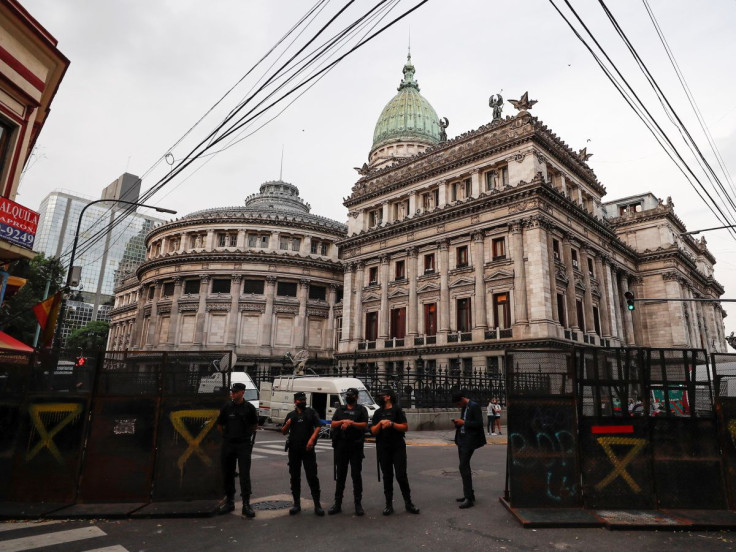Argentina VP Kirchner Gains Power In The Shadows As Moderates Retreat

Argentina's leftist populist Vice President Cristina Fernandez de Kirchner is gaining power behind the scenes after a government shakeup, redrawing battle lines within a weakened ruling Peronist coalition ahead of elections next year.
The center-left government of Alberto Fernandez, already dented by a midterm election loss last year, was thrown into disarray on Saturday by the abrupt exit of economy minister Martin Guzman, an important ally to the president.
Fernandez de Kirchner, a two-term former president who served from 2007 to 2015, had clashed with Fernandez and Guzman over spending cuts, blaming tighter fiscal policy for hurting Argentines. That pressure led to Guzman's exit. Low-key economist Silvina Batakis, more allied with Kirchner, replaced him on Monday.
That came just a month after Daniel Scioli, a former regional governor during her presidency, took over as production minister from another moderate ally to the president, who was forced out in June after clashing with Kirchner allies.
"It's clear now Cristina is the figure that manages the coalition and the government," said Julio Burdman, director of the Electoral Observatory consultancy.
Fernandez, who won election in 2019, has long had to defend himself against claims that his vice president was pulling the political stings. His public approval rating has nosedived to around 25%, according to pollster Ricardo Rouvier & Asociados. Fernandez de Kirchner does not fare much better at 25%-30%.
"The surveys show Cristina has suffered also from the conflict with Alberto," said Ricardo Rouvier, director of the polling firm.
The ruling Peronist coalition, Argentina's main political force, faces an uphill battle to retain the presidency in 2023 after a defeat in midterm elections last year amid worsening inflation, currency controls and debt fears.
The political infighting is not helping ease the troubled economic backdrop of a slowing economic recovery, plunging markets and consumer prices expected to rise more than 70% this year, hurting people's salaries and savings.
Argentines have tried to come to grips with the latest developments.
"I don't know if it is imminent that Cristina takes power, but I think she is already there in the shadows," said Yamila Ditolio, 34, a notary in Buenos Aires. "The truth is that the president's image is getting worse every day."
Ditolio added that she could not vote for Fernandez again.
"The vice president speaks as if she were not part of the government, as if she were from the opposition," added bank employee Rodolfo Alba, 52. "The truth is that it shows that there is no unity between them."
Spokespeople for the president and vice president did not immediately respond to requests for comment.
Some analysts have said Fernandez de Kirchner, who nominated Fernandez as a candidate before his election win, may look to support another candidate. Names that have been floated are the head of the lower house of deputies Sergio Massa as well as new minister and former Buenos Aires governor Scioli.
The president has hinted he will seek re-election but he would need his vice president's support base.
Carina Olartes, a 49-year-old financial-sector worker, said Argentines want clear direction and are not getting it.
"Obviously there's a lot of uncertainty. I think our entire country feels that," Olartes said. "We don't know where we're going, in what direction. Left or right? Argentines need a direction and I think that unfortunately we do not have it."
© Copyright Thomson Reuters 2024. All rights reserved.







